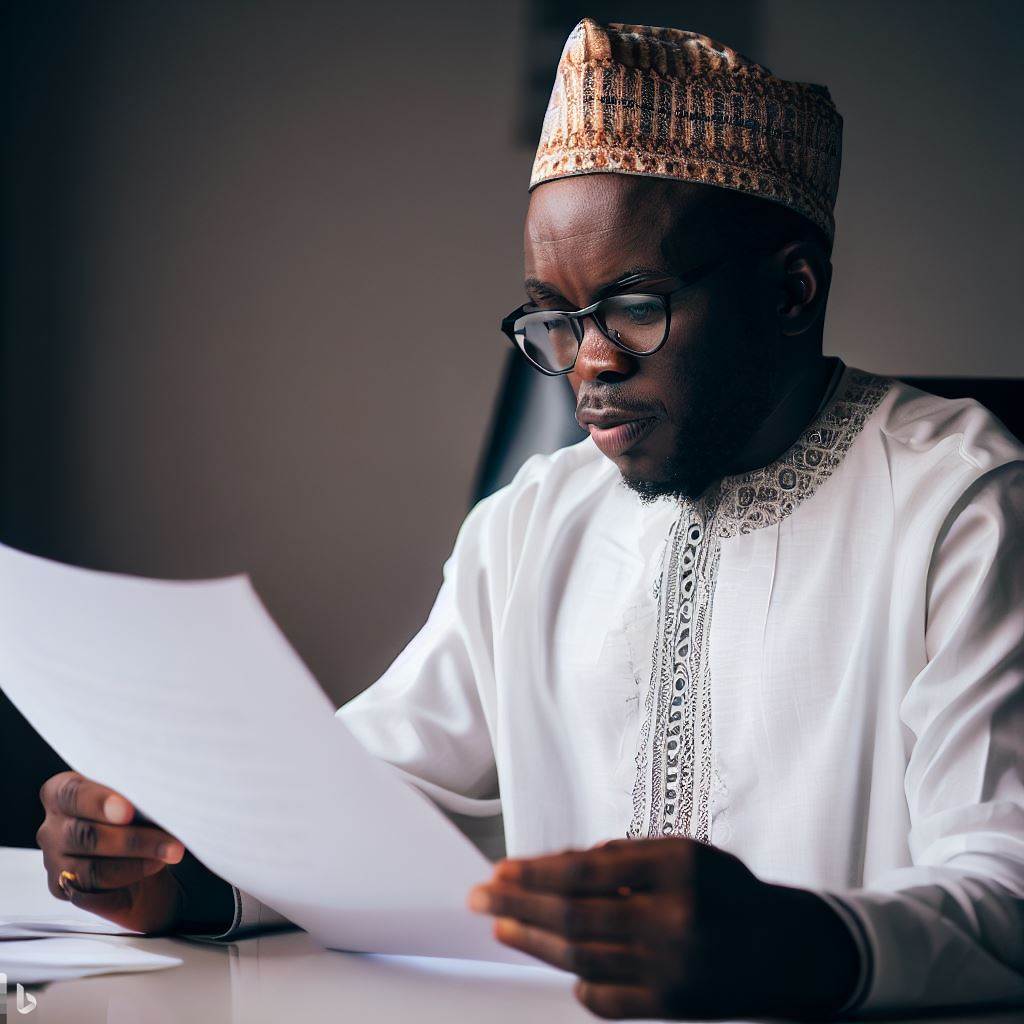Introduction
In the Nigerian freelance market, proposals are an integral part of the bidding process when applying for jobs.
As a freelancer in Nigeria, mastering the art of proposal writing is critical to securing client projects. Not only does it reflect your professionalism but it also sets you apart from other freelancers.
In this post, we will explore the importance of mastering proposals for Nigerian freelancers and provide practical tips for crafting winning proposals.
Why Mastering Proposals is Important for Freelancers in Nigeria
- Proposals showcase your skills and experience as a freelancer.
- It helps you stand out from a pool of freelancers applying for the same job.
- Proposals demonstrate your willingness to understand and meet the client’s needs.
- It enhances the client’s confidence in your ability to deliver the project effectively.
Practical Tips for Crafting Winning Proposals
When writing proposals as a Nigerian freelancer, there are specific practices that will make your proposal stand out. They include:
- Begin with a captivating introduction that briefly highlights your experience and expertise.
- Demonstrate your understanding of the client’s needs and provide a comprehensive plan on how you intend to meet their requirements.
- Be clear and concise with your proposal, avoiding jargon and complicated language.
- Highlight any unique skills or qualities that set you apart from other freelancers.
- Include a timeline and a clear budget plan for the project.
- End the proposal with a call-to-action, indicating your availability for further discussions and providing your contact information.
Basically, mastering proposals is a crucial skill for Nigerian freelancers looking to succeed in the highly competitive market.
By following these practical tips, freelancers can confidently approach every proposal with the knowledge and ability to succeed.
Understand the Client’s Needs
As a freelancer in Nigeria’s market, mastering proposals is an essential skill to succeed.
Before submitting a proposal, it is crucial to understand the client’s needs to deliver a successful project. Here are some crucial tips to follow:
The Importance of Understanding the Needs of the Client Before Submitting a Proposal
Understanding the client’s needs is an essential step when creating a proposal.
The proposal should not only showcase your skills but also address the client’s wants and requirements. Without understanding the client’s goals, you cannot create a proposal specific to their needs.
Moreover, it can lead to misunderstandings and a project that does not meet the client’s expectations.
How to Research and Gather Information About the Client’s Business and Project
Researching the client’s business and project is crucial to creating an effective proposal. Here are some steps to follow:
- Visit the client’s website and social media accounts to learn about the business’s products and services
- Read any available case studies or testimonials to understand the client’s past successes
- Review the project requirements in-depth and take notes on specific details needed for the project
- Understand the client’s target audience to create tailored solutions
Provide Examples of Effective Questions to Ask the Client
Asking the right questions is key to developing a proposal that satisfies the client’s specific needs. Here are some handy questions to ask:
- What are your business goals, and how do you see this project factor into them?
- What is your target audience, and how do you want to reach them?
- What specific deliverables or features do you want in this project?
- What format do you want for project feedback and communication?
- What is your budget and timeline for the project?
Effective communication with the client is one of the most critical factors while creating a proposal. The client should feel confident that you understand their requirements and can deliver on their expectations.
These tips on understanding the client’s needs, researching and gathering information about their business and project, and asking effective questions can help you master creating successful proposals, so you can thrive as a freelancer in Nigeria’s market.
Read: Nailing the Perfect Pitch: A Guide for Nigerian Freelancers
Crafting a Compelling Proposal as a Freelancer in Nigeria’s Market
As a freelancer in Nigeria’s market, writing a proposal that captures the attention of potential clients is essential to gaining more work.
A successful proposal requires careful thought and attention to detail, including a clear value proposition, project scope, and pricing.
Here are some essential elements that you should consider including in your proposals.
A Clear Value Proposition
Your proposal should clearly outline the value that you are providing to your potential client. Explain how your work will benefit them and showcase your unique skills and experience.
Your proposal should demonstrate that you understand their needs, and that you have the expertise to deliver high-quality work on time, and within budget.
Project Scope
Clearly define the project scope and outline the specific deliverables that you will provide.
Be specific about the timeline, deadlines, and any milestones that are involved in the project. Include details about how the project will be managed, and how you will communicate with your client throughout the process.
A clearly defined project scope will help to manage expectations and ensure that both parties are on the same page.
Pricing
When it comes to pricing your work, it’s important to be transparent and fair. Provide a detailed breakdown of the costs involved in the project, including any expenses that you may incur.
Your pricing should be aligned with the project scope and your value proposition. Make sure to clearly communicate your payment terms and any payment due dates.
Tailoring Your Proposal to the Client
An effective proposal is one that is tailored to the specific needs and expectations of the client. Research the client and understand their unique challenges and goals.
Use this information to tailor your proposal and demonstrate how your skills and experience will help them to achieve their goals.
This will help you to stand out from other proposals that are not as targeted and may not address the specific needs of the client.
Writing in a Professional and Persuasive Tone
Finally, it’s important to write your proposal in a professional and persuasive tone. Your proposal should be easy to read and understand, and it should capture your client’s attention from the very beginning.
Use a clear and concise writing style, and avoid using overly technical language or jargon that may be difficult for your client to understand.
Use active voice, and focus on the benefits that you will provide to the client. Include examples of your past work, and use testimonials from other clients to showcase your experience.
In general, writing a successful proposal as a freelancer in Nigeria’s market requires careful thought and attention to detail. Craft a compelling proposal that clearly outlines your value proposition, project scope, and pricing.
Tailor your proposal to the specific needs of your client, and write in a professional and persuasive tone. By following these tips, you can increase your chances of winning new work and building a successful freelance career in Nigeria’s market.
Read: Creating a Freelance Portfolio in Nigeria that Lands Clients

Follow Up and Closing
Submitting a proposal is not just about creating a great pitch, it’s also about following up on it.
Following up is crucial to stay on top of the client’s mind and to build a strong relationship.
Here are the reasons why following up is important:
Importance of Following Up
- It shows that you are serious about the project.
- It gives you an opportunity to address any questions or concerns the client may have.
- It helps you build a relationship with the client and provides a chance to establish trust.
- It can help you learn from the process and improve your proposal technique.
Following up can be done via email or phone. Here are some tips for writing an effective follow-up message:
Examples of Effective Follow-Up Messages
- Be polite and professional. Greet the client and thank them for the opportunity to submit your proposal.
- Recap your proposal briefly. Remind the client of the highlights of your proposal.
- Address any concerns or questions. If the client has any concerns or questions, address them in your follow-up message. This shows that you are proactive and are willing to go the extra mile to get the job.
- Ask about next steps. Ask the client about the timeline for the project and if they need any additional information from you.
- End on a positive note. Thank the client again for considering your proposal and express your enthusiasm for the project.
Now that you have followed up, what happens next? Here are some tips on how to handle different outcomes:
Rejection
Rejection is a natural part of the proposal process. Don’t take it personally, learn from it instead.
Here’s what you can do:
- Ask for feedback. Ask the client for feedback on why your proposal was rejected. This will help you learn and improve your proposal technique.
- Stay positive. Keep a positive mindset and move on to the next opportunity.
Acceptance
Congratulations, your proposal has been accepted! Here’s what you need to do:
- Send a thank you message. Thank the client for choosing you and express your excitement for the project.
- Confirm the details. Confirm the timeline and all the details of the project with the client to avoid any miscommunication.
- Stay professional. Keep your communication professional and ensure that you deliver on your promises.
Most importantly, mastering proposals as a freelancer in Nigeria’s market involves not only creating a great pitch but also following up after submitting it.
Following up is important as it shows your professionalism and interest in the project.
When following up, be polite and professional, address concerns or questions, and end on a positive note. If your proposal gets accepted, send a thank you message, confirm the details, and stay professional.
And if your proposal is rejected, ask for feedback, stay positive, and move on to the next opportunity.
With these tips, you can improve your proposal technique, build strong relationships with clients, and ultimately succeed as a freelancer in Nigeria’s market.
Read: Evolving Your Freelance Portfolio in Nigeria’s Dynamic Market
Conclusion
Mastering proposals is crucial for success as a freelancer in Nigeria’s market. To start, research the client and tailor the proposal to their needs and expectations.
Clearly state your skills and services, and provide past work examples.
Use persuasive language and be confident in your abilities. Show that you understand the client’s industry and offer unique solutions to their problems. Offer competitive rates and a clear timeline for the project.
Follow up with the client after submitting the proposal and be open to negotiation. Communication is key to building a strong relationship with the client.
In the end, mastering proposals is essential for freelancers in Nigeria’s competitive market. It allows you to stand out from the crowd and win more projects.
Apply the tips and strategies discussed in this post to your own freelance work and see the positive impact it has on your business.




